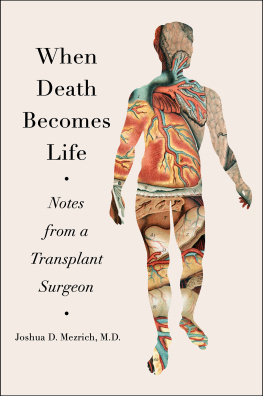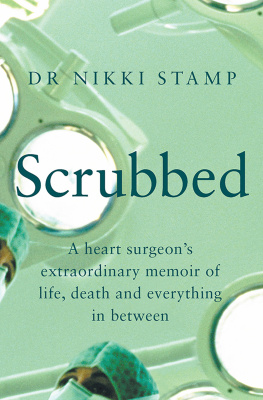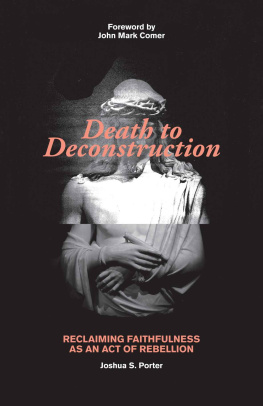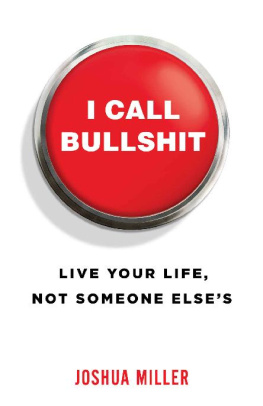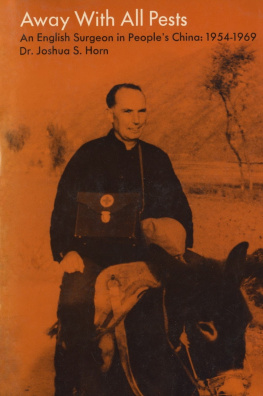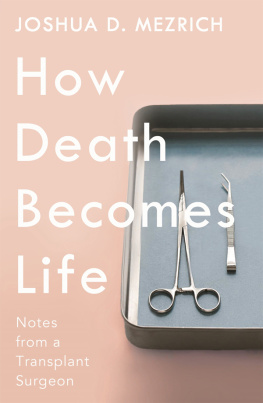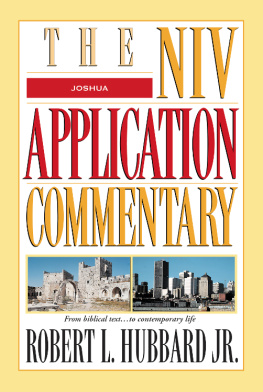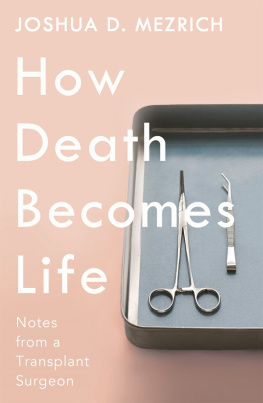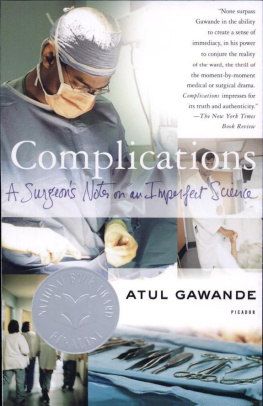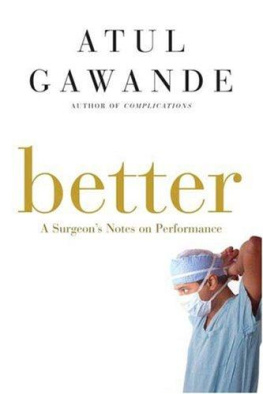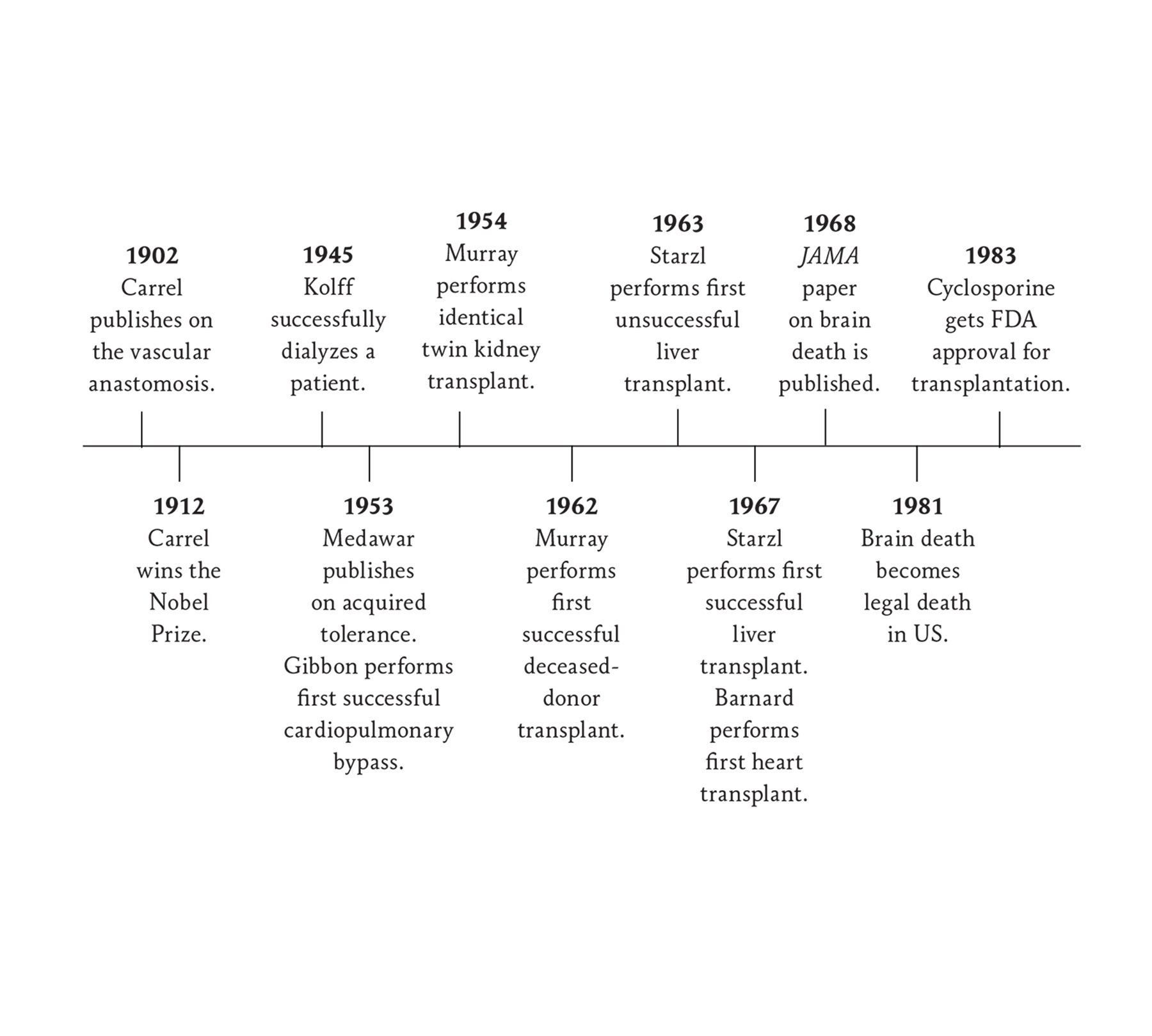Joshua D. Mezrich - When Death Becomes Life: Notes from a Transplant Surgeon
Here you can read online Joshua D. Mezrich - When Death Becomes Life: Notes from a Transplant Surgeon full text of the book (entire story) in english for free. Download pdf and epub, get meaning, cover and reviews about this ebook. year: 2019, publisher: Harper, genre: Home and family. Description of the work, (preface) as well as reviews are available. Best literature library LitArk.com created for fans of good reading and offers a wide selection of genres:
Romance novel
Science fiction
Adventure
Detective
Science
History
Home and family
Prose
Art
Politics
Computer
Non-fiction
Religion
Business
Children
Humor
Choose a favorite category and find really read worthwhile books. Enjoy immersion in the world of imagination, feel the emotions of the characters or learn something new for yourself, make an fascinating discovery.
- Book:When Death Becomes Life: Notes from a Transplant Surgeon
- Author:
- Publisher:Harper
- Genre:
- Year:2019
- Rating:5 / 5
- Favourites:Add to favourites
- Your mark:
When Death Becomes Life: Notes from a Transplant Surgeon: summary, description and annotation
We offer to read an annotation, description, summary or preface (depends on what the author of the book "When Death Becomes Life: Notes from a Transplant Surgeon" wrote himself). If you haven't found the necessary information about the book — write in the comments, we will try to find it.
A gifted surgeon illuminates one of the most profound, awe-inspiring, and deeply affecting achievements of modern day medicinethe movement of organs between bodiesin this exceptional work of death and life that takes its place besides Atul GawandesComplications,Siddhartha MukherjeesThe Emperor of All Maladies,and Jerome GroopmansHow Doctors Think.
At the University of Wisconsin, Dr. Joshua Mezrichcreates life from loss, transplanting organs from one body to another. In this intimate, profoundly moving work, he illuminates the extraordinary field of transplantation that enables this kind of miracle to happen every day.
When Death Becomes Lifeis a thrilling look at how science advances on a grand scale to improve human lives. Mezrich examines more than one hundred years of remarkable medical breakthroughs, connecting this fascinating history with the inspiring and heartbreaking stories of his transplant patients. Combining gentle sensitivity with scientific clarity, Mezrich reflects on his calling as a doctor and introduces the modern pioneers who made transplantation a realitymaverick surgeons whose feats of imagination, bold vision, and daring risk taking generated techniques and practices that save millions of lives around the world.
Mezrich takes us inside the operating room and unlocks the wondrous process of transplant surgery, a delicate, intense ballet requiring precise timing, breathtaking skill, and at times, creative improvisation. In illuminating this work, Mezrich touches the essence of existence and what it means to be alive. Most physicians fight death, but in transplantation, doctors take from death. Mezrich shares his gratitude and awe for the privilege of being part of this transformative exchange as the dead give their last breath of life to the living. After all, the donors are his patients, too.
When Death Becomes Lifealso engages in fascinating ethical and philosophical debates: How much risk should a healthy person be allowed to take to save someone she loves? Should a patient suffering from alcoholism receive a healthy liver? What defines death, and what role did organ transplantation play in that definition? The human story behind the most exceptional medicine of our time, Mezrichs riveting book is a beautiful, poignant reminder that a life lost can also offer the hope of a new beginning.
Joshua D. Mezrich: author's other books
Who wrote When Death Becomes Life: Notes from a Transplant Surgeon? Find out the surname, the name of the author of the book and a list of all author's works by series.

